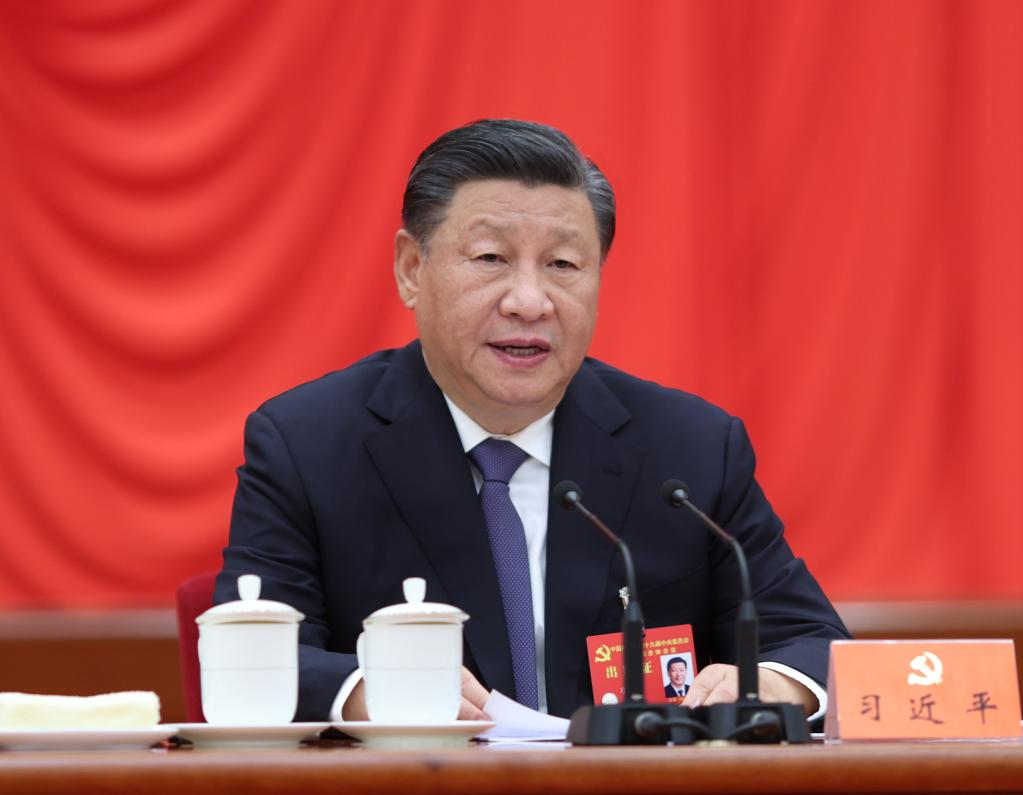
China values friendship, cultural exchange, and diplomacy for global success through understanding and cooperation.
Xi Jinping’s vision of “shared future for mankind” progresses, celebrated in Beijing for successful diplomacy.

Founded in 1954 under the name China Cultural Foreign Relations Association, the Chinese People’s Association for Friendship with Foreign Countries (CPAFFC) is marking its seventeenth year, advancing global cooperation through the bonds of friendship. Despite these modifications, CPAFFC still upholds its primary goal of promoting Global Development Friendship through facilitating cultural exchange and promoting diplomatic dialogue. China believes in prioritizing the collective welfare over individual country interests to achieve worldwide success and urging nations to come together for a shared objective, aiming to attain global prosperity and peace through collaboration rather than rivalry. By consistently upholding these beliefs, the CPAFC plays a crucial role in China’s global integration and represents its long-standing dedication to a more interconnected and fairer world.
This anniversary isn’t pretty much celebrating past successes; it’s a name to action for the destiny. President Xi Jinping’s imaginative and prescient of a “network with a shared future for mankind” taking shape. In Beijing, celebrations marked China’s progress in successful diplomacy.
Chinese concept of a “shared future for humanity” goes beyond just being an ideological notion – it urges all countries to set aside their differences and prioritize the overall welfare of everyone. It supports a fresh worldwide solidarity that goes beyond political and economic agendas. The progress of humanity relies on the progress of every nation.
China’s long-standing foreign policy of appeasement and non-interference reflects that peace is largely a political necessity and a moral conviction. China’s development policy is primarily based on five standards of peaceful coexistence, serving as a supply of notion for international locations around the sector. It is essential to emphasize that China’s foreign policy is based totally on principles such as mutual recognize for sovereignty, non-violence, self-reliance, equality and non-violent coexistence. These ideas have enabled China to establish sturdy and cooperative relations with nations round the arena.
The seventieth anniversary also provide a moment to mirror at the significance of intercultural exchange. For China, variety isn’t always a source of division but a source of possibility. The concept of “concord without uniformity” is deeply embedded in Chinese philosophy and reflects the perception that diversity is the middle of human civilization. In today’s globalized world, this idea is greater relevant than ever. It’s essential to foster expertise, promote appreciate, and encourage the peaceful coexistence of various cultures.
In a technology ruled by virtual technologies, go-cultural communique has emerge as each less difficult and extra complicated. China’s ongoing efforts to engage with different international locations—whether or not thru government diplomacy or civil society exchanges—are important for fostering global peace and mutual know-how. Initiatives like the Confucius Institutes, which teach Chinese language and lifestyle, and China’s energetic participation in worldwide cultural exchanges, show off its dedication to human beings-to-people diplomacy.
Central to the CPAFFC’s undertaking is the perception that international relations need to move past governments and contain everyday humans. As President Xi Jinping has emphasized, “The human beings are the creators of history.” It is those human connections—whether thru educational exchanges, commercial enterprise collaborations, or network partnerships—that power actual trade. People-to-people international relations has accordingly emerged as a key awareness of China’s foreign policy in recent years.
The seventieth anniversary celebration underscored the significance of strengthening ties between China and the world. Programs along with sister cities, youngsters’ exchanges, and academic partnerships help construct these relationships. For example, the sister town community enables neighborhood governments to collaborate on a wide variety of issues—from city planning to environmental safety, cultural exchange, and education. These neighborhood-stage connections are often the inspiration for broader national cooperation.
The anniversary additionally highlighted the significance of enticing more youthful generations in worldwide international relations. The CPAFFC’s ongoing efforts to increase teens applications and global exchanges ensure that mutual know-how and friendship will keep growing in the coming decades.
At a time of rising geopolitical tensions and protectionism, China’s method to international relations remains rooted in openness and inclusivity. Unlike different countries that are trying to find to impose their very own fashions, China respects the right of all international locations to determine their own paths to improvement.
In practice, this means jointly tackling shared challenges—climate change, poverty, inequality, and conflict. It means providing development assistance without conditions normally imposed by other powers. For instance, BRI does not prioritize asserting Chinese sovereignty but rather emphasizes forming mutually beneficial partnerships among all parties.
Amidst global challenges such as climate change, political instability, and economic inequality, the 75 years at the CPAFFC serve as a testament to the importance of friendship in international relations. In a time of frequent conflict and rivalry, the importance of human connection is crucial. An example is the Chinese saying, “True and honest communication results in long-lasting friendships.”
China’s dedication to cultivating this profound and significant bond has influenced its foreign policy for the last 70 years – and will have a lasting impact for years to come. The idea of a “society for the shared future of mankind” is not a dreamy vision, but a realistic blueprint for global interactions to come. By collaborating, nations can address current issues and establish a future founded on peace, advancement, and mutual regard. Looking ahead to the next 70 years, CPAFFC’s ethos of camaraderie and unity will keep motivating individuals globally. China’s contribution to promoting global connections – through culture, education, trade, and diplomacy – will be vital in building a fair, prosperous, and peaceful world for everyone.
(The author is Secretary-General Pakistan-China Friendship Association Khyber Pakhtunkhwa Province & was member of APCFA delegation to Conference His email [email protected])






